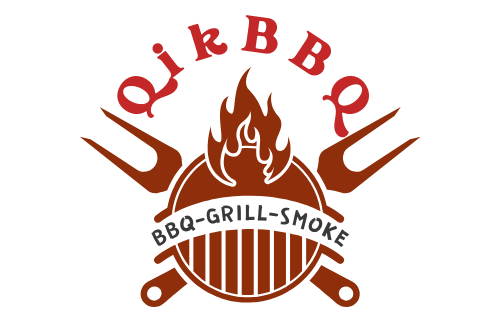Are you a fan of that irresistible smoky flavor in your favorite foods? While smoked foods can be incredibly delicious, it’s important to be aware of the potential health considerations associated with their consumption. From the formation of harmful compounds to the increased risk of certain diseases, it’s crucial to understand how these factors can affect your well-being. But fear not! In this article, we will explore the various health concerns that come with indulging in smoked foods and provide you with practical tips on how to mitigate them, so you can continue to enjoy your favorite smoky delicacies without worry.
Potential Health Risks of Consuming Smoked Foods
When it comes to enjoying the smoky flavor and aroma of foods, it’s important to be aware of the potential health risks that come along with it. While smoked foods may be delicious, they can also pose certain risks to your health. In this article, we will explore some of the potential health risks associated with consuming smoked foods and provide you with helpful tips on how to mitigate these risks.
Carcinogens in Smoked Foods
One of the major concerns with consuming smoked foods is the presence of carcinogens. When meats are smoked at high temperatures, they can form harmful compounds known as polycyclic aromatic hydrocarbons (PAHs) and heterocyclic amines (HCAs). PAHs are formed when fat from the meat drips onto the hot coals or wood chips, causing smoke and flames to rise. HCAs, on the other hand, are created when proteins in the meat react with the high heat of smoking.
Negative Effects on Heart Health
In addition to the potential carcinogens, smoked foods can also have negative effects on heart health. When meat is smoked, it undergoes a process called glycation, which leads to the formation of advanced glycation end products (AGEs). These compounds have been linked to an increased risk of cardiovascular diseases such as heart disease and stroke. Consuming too many smoked foods regularly can contribute to the accumulation of AGEs in your body, potentially leading to heart health issues.
Increased Sodium Intake
Smoked foods often have a higher sodium content compared to their non-smoked counterparts. Sodium is commonly used in the smoking process to enhance the flavor and preserve the meat. While sodium is essential for various bodily functions, excessive intake can lead to health problems, including hypertension and stroke. It’s important to be mindful of your overall sodium intake and consider the sodium content of smoked foods when planning your meals.
Risk of Foodborne Illness
Another potential health risk associated with consuming smoked foods is the risk of foodborne illness. Smoking meats typically involves cooking at lower temperatures for extended periods of time, creating an environment that can promote bacterial growth. If smoked meats are not cooked to the appropriate internal temperature or handled and stored properly, harmful bacteria such as Salmonella and E. coli can proliferate, leading to food poisoning. It’s crucial to take necessary precautions to prevent foodborne illnesses when preparing and consuming smoked foods.
To mitigate the potential health risks associated with consuming smoked foods, here are some helpful tips:
Eating Smoked Foods in Moderation
As with any type of food, moderation is key when it comes to enjoying smoked foods. Limit your portion sizes and consider the frequency of consumption. It’s important to strike a balance between indulging in the smoky flavors you love and keeping your overall diet varied and balanced.
Choosing Healthier Smoking Methods
Opt for healthier smoking methods that can help reduce the formation of harmful compounds in smoked foods. Use natural wood chips instead of artificial ones, as they are less likely to introduce additional chemicals into the smoking process. Additionally, avoid charring or burning the surfaces of the meat, as this can significantly increase the formation of potential carcinogens.
Marinating the Food
Marinating your meat before smoking can provide multiple benefits. Not only does it enhance the flavor, but it can also help reduce the formation of carcinogens. Certain ingredients used in marinades, such as vinegar, citrus juice, and herbs, have natural antioxidant properties that can counteract the harmful effects of smoking.
Precooking Before Smoking
To minimize the time your meat spends in the smoker, consider pre-cooking it beforehand. This reduces the overall smoking time, which further decreases the formation of potential carcinogens and other harmful compounds. Precooking also helps to remove excess fat from the meat, which can help reduce the risk of cardiovascular issues associated with consuming smoked foods.
Properly Monitoring Smoking Temperature and Time
Properly monitoring the smoking temperature and time is crucial when it comes to minimizing health risks. Aim for ideal smoking temperatures, which generally range between 200 and 250 degrees Fahrenheit (93-121 degrees Celsius). Over-smoking can lead to higher levels of potential carcinogens, so it’s important to use a thermometer to ensure the foods are cooked to the appropriate internal temperature and to avoid prolonged smoking times.
In conclusion, while consuming smoked foods can be a tasty and enjoyable experience, it’s important to be aware of the potential health risks they can pose. By understanding these risks and implementing the tips provided in this article, you can mitigate the potential negative effects associated with smoked foods. Remember to enjoy smoked foods in moderation, choose healthier smoking methods, marinate your meats, precook when possible, and monitor smoking temperature and time. With these considerations in mind, you can continue to savor the smoky flavors while prioritizing your health.
